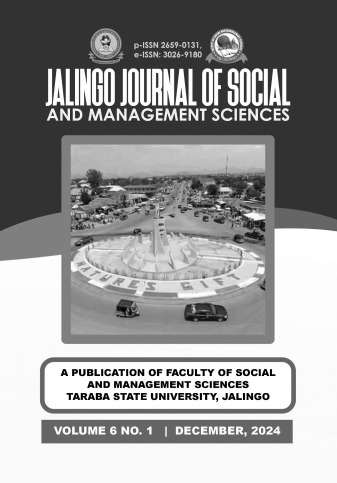The Changing Role of Globalization and Africa’s Development Crisis: A Prognosis
Keywords:
Globalization, changing roles, Africa’s Development CrisisAbstract
The study explores the changing role of globalization and its impact on Africa's development crisis. It highlights the significant influence of globalization on the economic, social, and political landscapes of the African continent. The study underscores the challenges faced by African nations in navigating the complexities of a rapidly globalizing world and addressing the persistent
development issues that have hindered the region's progress. The methodology employed in this study is a qualitative method based on content analysis, which allows for an in-depth examination of the contemporary factors shaping the relationship between globalization and Africa's development. The theoretical framework for the study is grounded in dependency theory, which provides insights into the power dynamics and unequal exchange between the Global North and the Global South. One of the study's findings indicates that the changing nature of globalization has both positive and negative implications for Africa's development. While increased integration with the global economy has brought about some opportunities, the study also reveals the persistent
challenges of unequal trade relationships, limited access to resources, and the perpetuation of colonial-era power structures. The study concludes by emphasizing the need for a comprehensive and context-sensitive approach to addressing Africa's development crisis. One major recommendation is the adoption of more inclusive and sustainable development strategies that empower local communities and foster greater self-reliance within the African continent.

Downloads
Published
Issue
Section
License
Copyright (c) 2024 JALINGO JOURNAL OF SOCIAL AND MANAGEMENT SCIENCES

This work is licensed under a Creative Commons Attribution-NonCommercial 4.0 International License.
